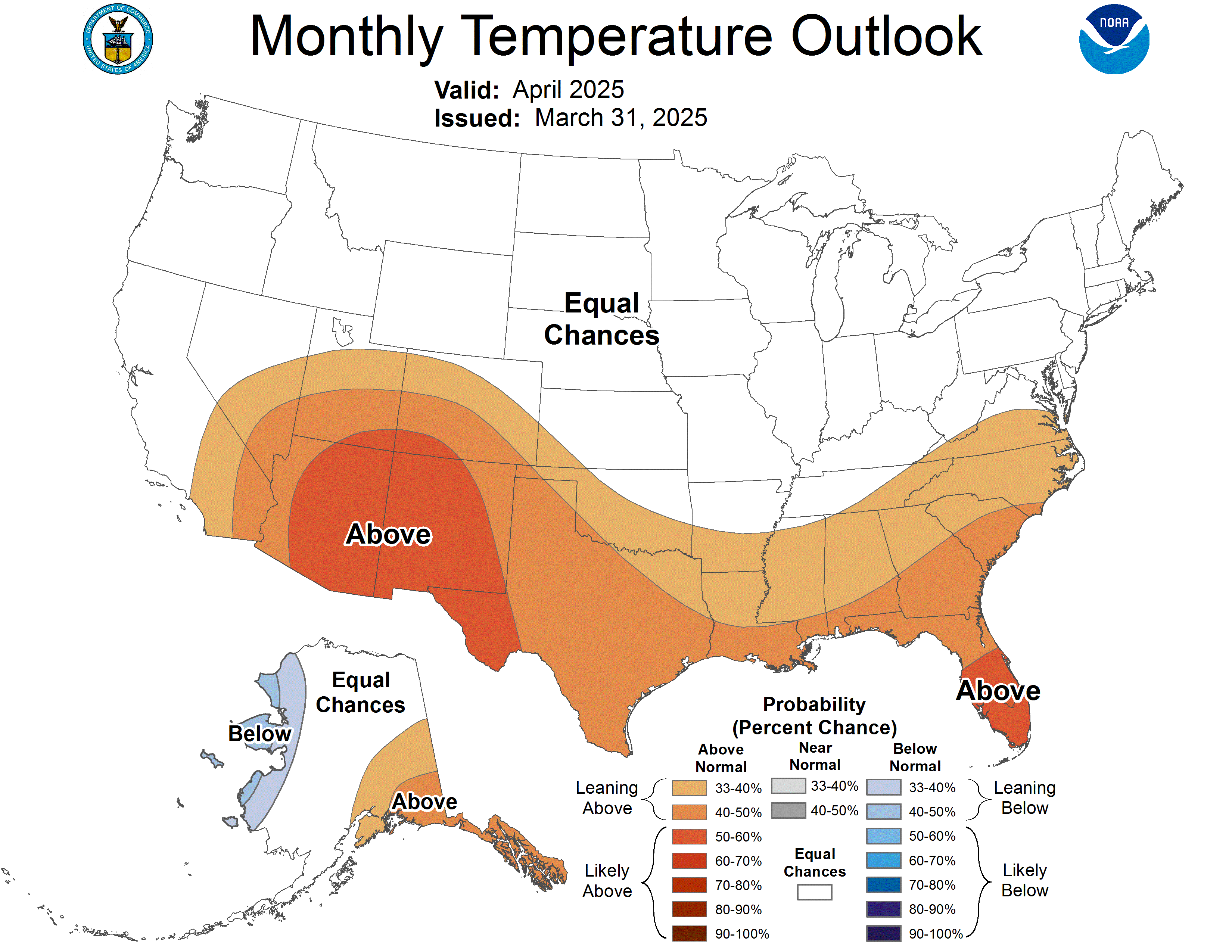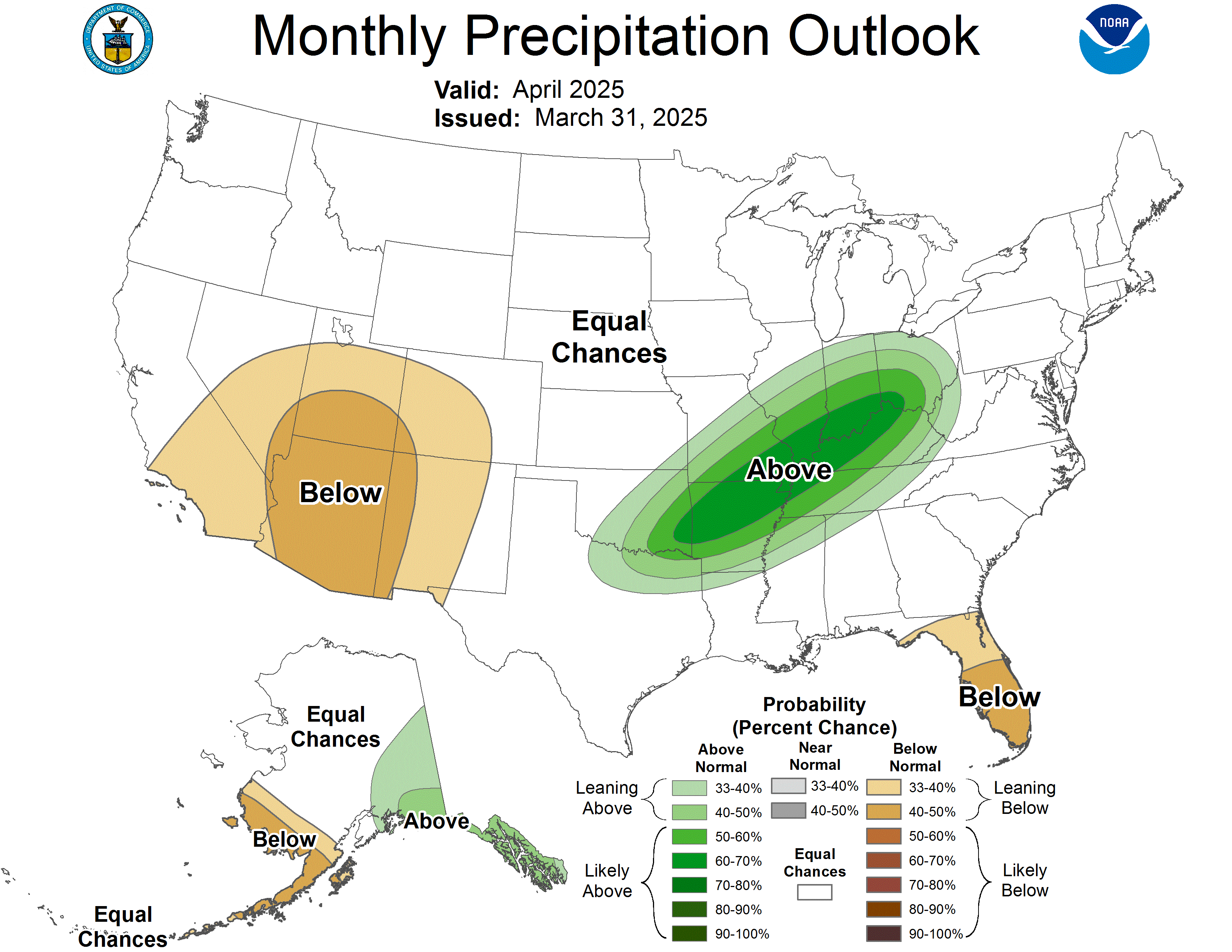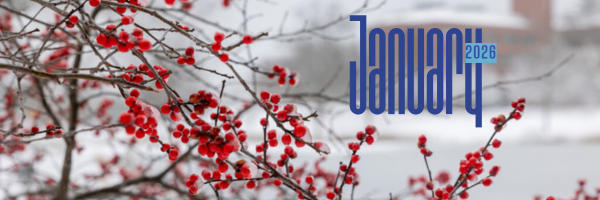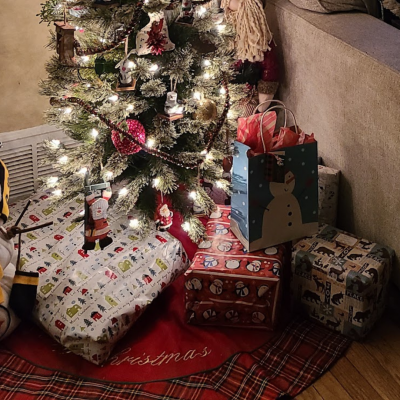
“Every February, when the days grow long enough, the sun brings hope for new beginnings."
— Louise Hay
Identifying Trees in Winter

Believe it or not, winter is a great time to flex your tree identification skills. During the growing season, we have leaf shapes and arrangements to help us, but in the winter we have to look closer at the tree itself for answers.
Instead of leaves, closely examine bark, twigs and buds in the winter for clues. Assess the branching pattern, overall size and environmental location for other hints.
Like a proper gumshoe, check the ground for dropped leaves - keeping in mind that dropped leaves may be from the tree in question, or neighboring trees. These are best used for confirmation in addition to other characteristics.
There are plenty of resources and field guides out there to help you hone your skills. If you don't have a guide on hand, get good pictures so you can check them against a field guide when you are home. You can always send pictures to us for additional help!
Gardening for Winter Interest

Radiant berries, eye catching bark, snowcapped seeds, golden columnar grasses with feathery tops, and persistent green foliage are sure to brighten up the garden during the darkest months of year. Use this article to start planning now to enjoy your garden even more next winter.
Winter Birding: Horned Larks
Winter birding gets very interesting as many species are here only until early spring, and you need to get out soon to see them. The shoreline is a great place to find sanderlings, ruddy ducks, Brandt geese, dunlins and other winter visitors, but inland has its own thrills for winter birders.
Horned larks are just one- look for these where snow melts near fields and pastures where seed is abundant. We have these birds now at UConn's Horsebean Hill along the roads between pastures. They sometimes can be found at Meigs's Point, Hammonasset State Park, around the parking lot and grassy areas.

Image © Russ Smiley
Native Plant: Bayberry
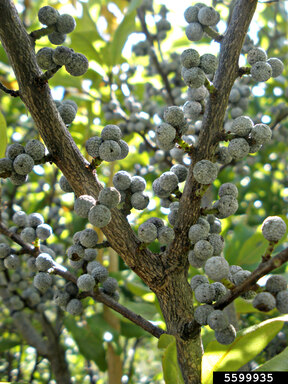
Native to North America, bayberry (Myrica L.) is a deciduous shrub prevalent across eastern regions of the U.S. Northern bayberry (Myrica pensylvanica) is the most prominent variety in coastal areas of the northeast. Thus, it prefers moist, acidic soil with full sun and is tolerant of shoreline conditions like salt spray and high winds. Northern bayberry also withstands periods of drought. Shrubs grow in clusters, often along slopes or banks, acting as a means of control against erosion.
Its dense, gray-green foliage has a narrow shape and a glossy appearance. Resin glands on leaf undersides produce a pleasant aroma when crushed. Northern bayberries are often dioecious—male and female flowers are on separate plants. Male and female flowers are both arranged in catkins. Male flowers are shades of dull yellow and green, while female flowers do not exhibit significant coloring—also lacking both sepals and petals. In the summer, female plants alone produce small, waxy fruit, provided that they are wind pollinated. Drupes can appear gray, white, or dull blue. Wildlife, mostly birds, utilizes them as a source of food. Bayberry fruit remains on shrubs until the following spring, sustaining the shrub with interest in appearance throughout all seasons.
The Connecticut Native Perennial, Tree, & Shrub Availability List
Word from the WiSE
Women in Soil Ecology, UConn Student Chapter
Biochar: Turning Waste into Soil Opportunity
This month, we’re bringing you a word on biochar—a carbon-rich material made by heating biomass (like wood chips, manure solids, or crop residues) under low-oxygen conditions. Think of it as “charcoal for soils,” designed not to burn, but to stay stable and interact with soil processes over the long term.
Why is biochar getting so much attention? First, it can help build soil carbon because a portion of biochar is resistant to decomposition, allowing carbon to remain in soil longer than many fresh organic inputs. Depending on the biochar type and the soil it’s applied to, biochar may also improve water holding, aggregate stability, and nutrient retention by increasing surface area and creating more sites that hold onto nutrients. In acidic soils, some biochar can even act as a mild liming material, nudging pH upward—though the effect varies a lot by feedstock and production temperature.
A quick note: biochar isn’t “one-size-fits-all.” Some biochar can contain salts or trace contaminants, and fresh biochar may temporarily tie up nutrients if it isn’t “charged” first. A practical tip is to pre-condition biochar by mixing it with compost, manure, or a nutrient solution before application, then incorporate it ahead of planting so it has time to equilibrate with the soil.
Biochar can be a powerful tool—especially when matched thoughtfully to soil needs and management goals.
By Zheng Yiling, Soil Science Graduate Student UConn PSLA
Knowledge to Grow On
Read our Ladybug Blogs Written Weekly
A Few Historic Barns of North-central Connecticut
The Winter Garden: Selecting Plants to Brighten Up Short Days
Seaweed—A Case of False Advertisement
Is Your Soil Too Tired? Signs of Compaction and How to Fix It
Find Us in the Media
Beech Bark Disease – One More Problem For Connecticut Beech Trees

Photo by Pamm Cooper, UConn Home Garden Education Office
Upcoming Events and Things to Do
- Nutmeg State Orchid Society Show and Sale
- West Harford Meeting & Conference Center, West Hartford, CT.
- March 21 12:00 PM - 5:00 PM
March 22 9:00 AM - 4:00 PM
Educational Opportunities & Workshops
- Meadow Mondays with the Ecological Landscape Alliance, Virtual.
The CT Flower & Garden Show 2026
The UConn Home Garden Education Office, along with our partners in the UConn Plant and Soil Health Center will be hosting a booth again this year at the flower show!
Come visit us in the same location (Booth 417 & 419) to ask gardening questions, have your soil pH tested, and learn about our new facility opening in spring of 2026!
100 Columbus Blvd.
Hartford, CT 06103
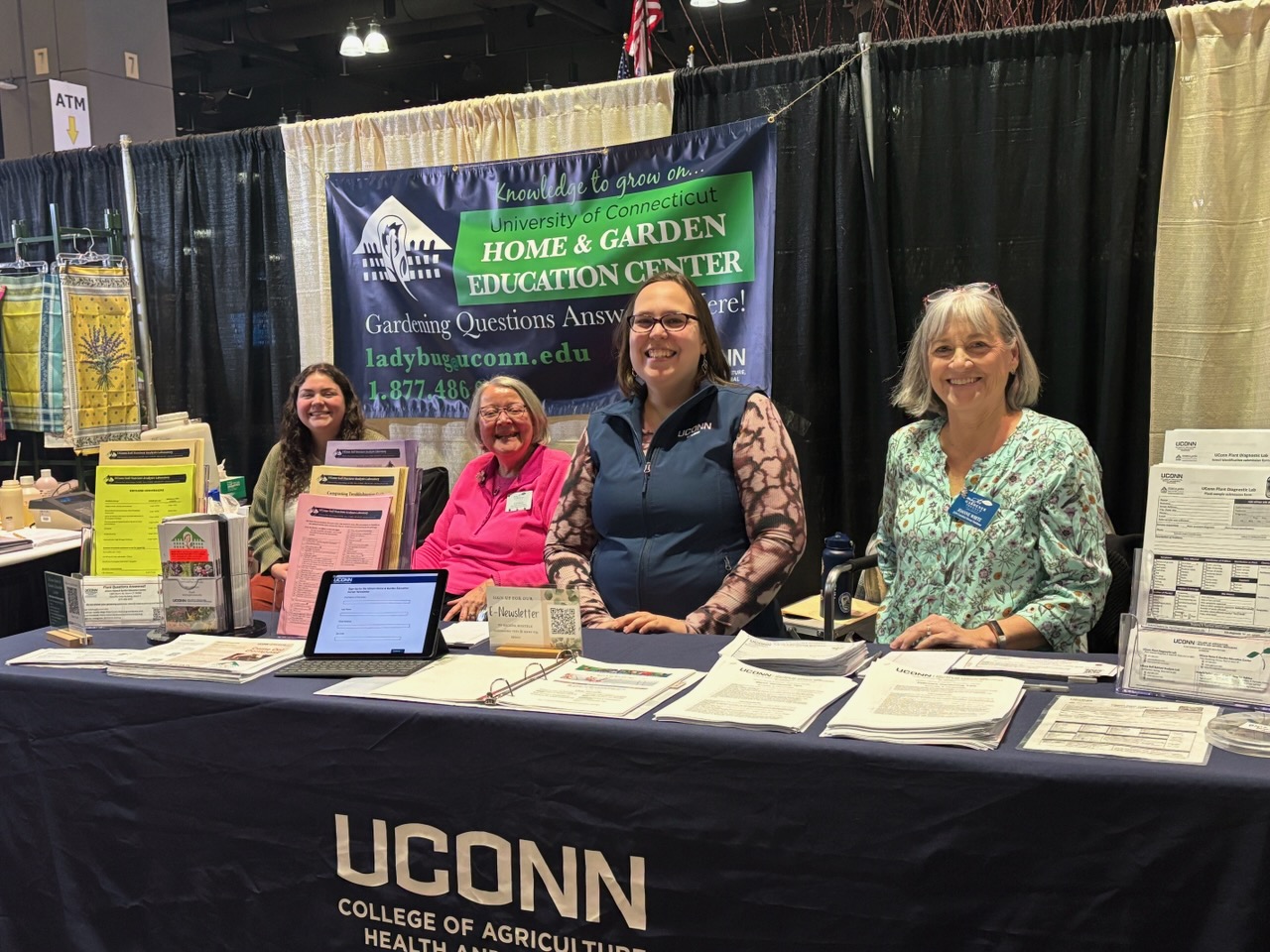
Our staff will be presenting the following seminars throughout the weekend:
Thursday, February 19
- Invasive Plants In Your Garden, Lauren Kurtz
- 11:00 AM, Room 11
Friday, February 20
- Wild Mushrooms Just for Fun, Pamm Cooper
- 12:30 PM, Room 11
Saturday, February 21
- Goal Orientated Gardening, Heather Zidack
- 12:30 PM, Room 11
Sunday, February 22
- Soil Test to Success: Simple Numbers, Better Gardens, Avishesh Neupane
- 11:00 AM, Room 11
February Gardening Tips
- This is the time to start small-seeded flowers such as begonias and petunias.
- If you’re starting seeds under fluorescent lights, check the light tubes for signs of age. Dark rings on the ends of tubes means they should be replaced. Dispose of properly.
- If you potted bulbs for forcing last fall, check their progress. Soil should be barely moist. If tips have sprouted and have a few inches of growth, bring the pot into a cool, bright room (50 to 60 degrees F). Gradually expose the plant to increasing warmth, indirect sunlight, and increased watering. Feed once a week with half-strength houseplant fertilizer. To help the stems grow straight, turn the pot every day. When buds and foliage are fully developed, bring into full sunlight, and enjoy!
- If you are overwintering plants into your garage or cellar, check the soil to see if it needs water. If the soil is frozen, it may be in too cold of a spot.
- When buying houseplants in winter, be sure to wrap them well for the trip home and, if possible warm up the car. This prevents the foliage from freezing and protects tropicals from drafts.
- Check all house plants closely for insect infestations. Quarantine gift plants until you determine that they are not harboring any pests. Inspect under leaves and stems for white, cottony mealybugs, and look under leaves and on stems for scale insects.
- Now is the time to order bare-root fruit trees. Consider placing an order from one of the CT Conservation Districts Spring Plant sales.
- When using salt to melt ice on walks and driveways, spread it carefully to avoid damage to lawns. Consider using sand or sawdust instead. After the snow melts, flush the area around the roots exposed to salt with fresh water.
- Inspect hemlocks for woolly adelgid. Plan to apply a dormant horticultural oil treatment in April if the cottony egg masses are found at the base of needles.
- Paint the handles of garden tools red or orange. This will preserve the wood and make the tools easier to locate when you lay them down in the garden or on the lawn.
- Whether you're shoveling snow, hauling firewood, out for a winter hike or playing in the snow make sure you're taking the proper safety precautions while out in the elements this winter!
We're Moving in April 2026
University of Connecticut
Roy E. Jones Building Annex
27 Manter Road, Storrs, CT, 06269
(In front of UConn Dairy Bar)

UConn Home Garden Education Office
Horticultural support and education for home garden issues related to plant health, garden pests, general plant care, and more.
UConn Plant Diagnostic Laboratory
Diagnosis of plant health and pest issues for commercial growers and the public.
UConn Soil Nutrient Analysis Laboratory
Soil chemistry testing including pH, nutrients, salinity, lime and fertilizer recommendations, and many others.
UConn Turf Diagnostic Lab
Turf diagnostics for golf courses, athletic fields, or other commercial turfgrass sites
What Stays the Same
We will continue to provide the professional and research-based support you’re used to, just in a convenient, central location. Our science-based testing protocols and result-driven recommendations reinforce our commitment to serving growers, landscapers, and the public with their plant and soil health issues.
What Gets Better
Combining current programs all under one roof provides an opportunity for more collaboration, outreach, and educational opportunities for our stakeholders.
- One easy-to-find location for soil, plant, and turf sample submissions
- Future expansion of diagnostic services available for plant and soil health analysis
- Collaboration between programs and increased opportunities for public outreach events
s.uconn.edu/plant-soil
This Month’s Newsletter Contributors:
Heather Zidack, Pamm Cooper, Lauren Kurtz, Emily Leahy, Zheng Yiling
